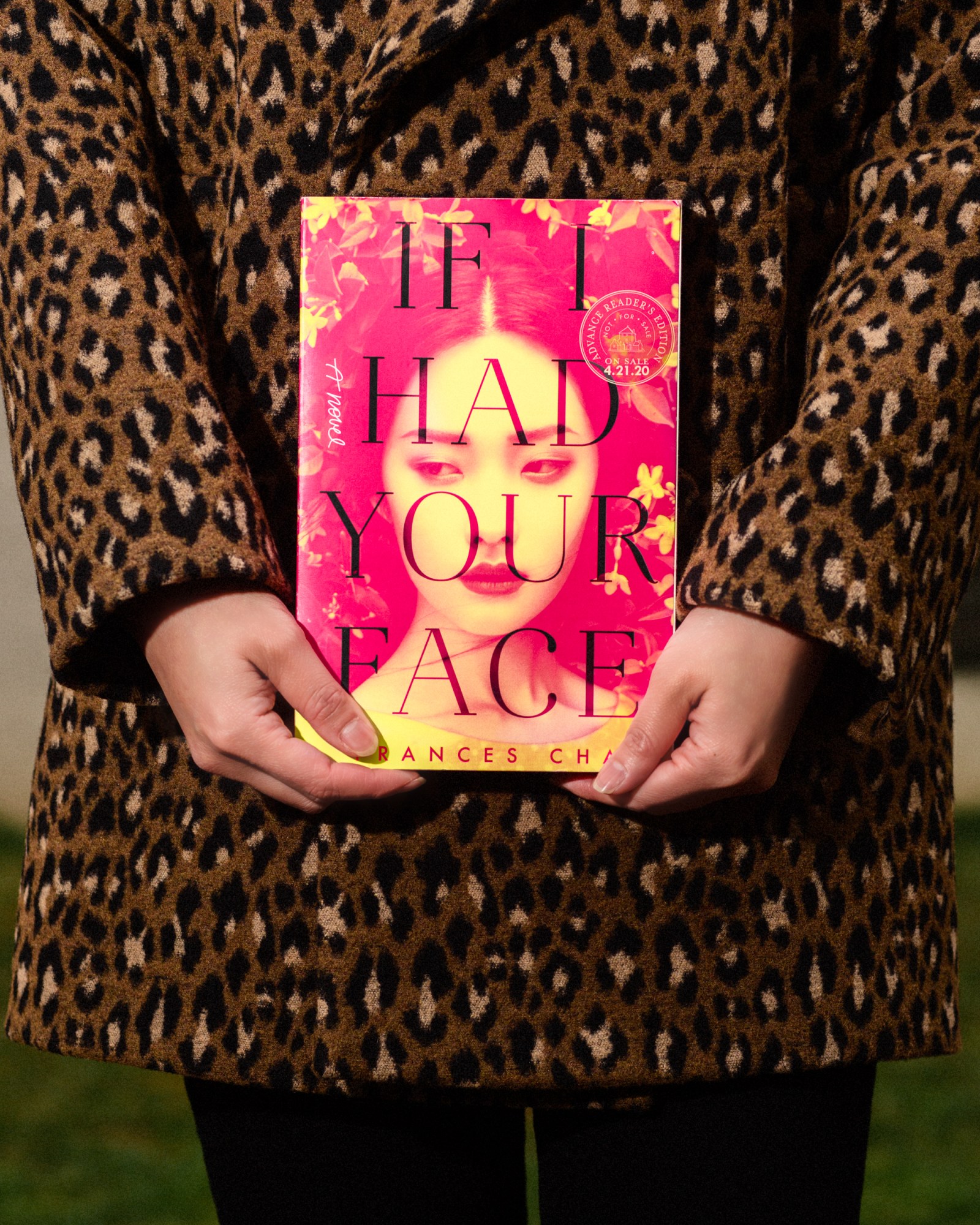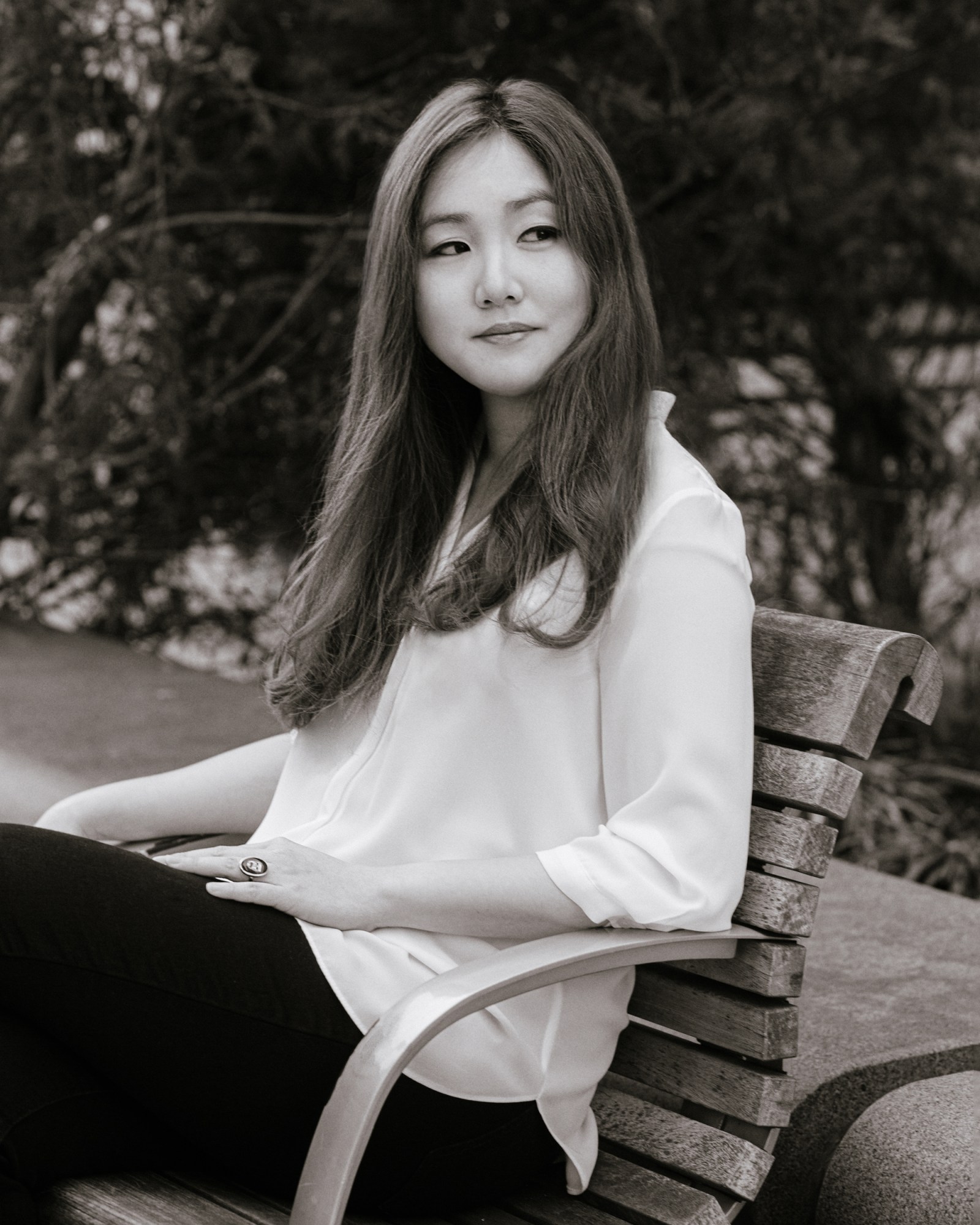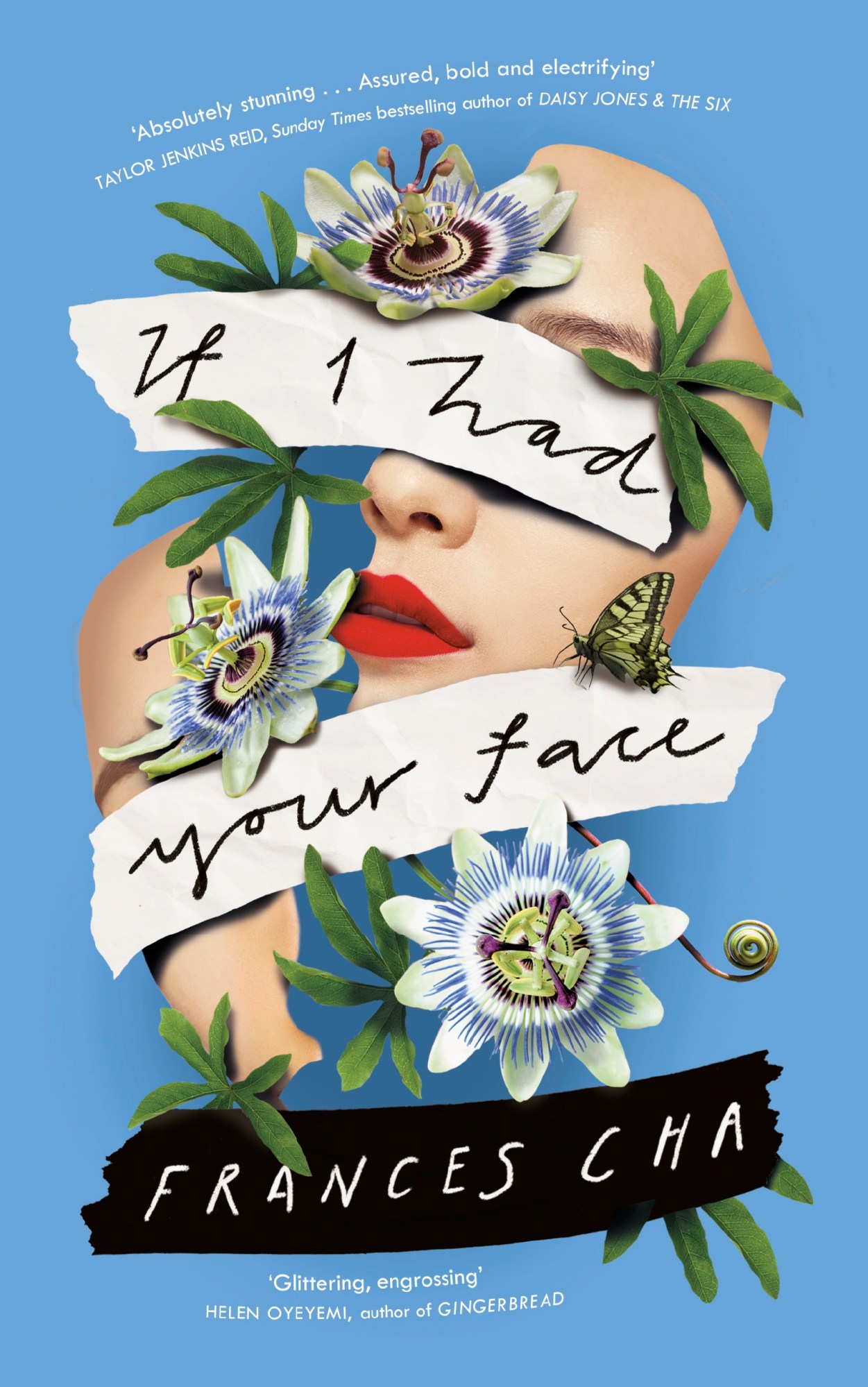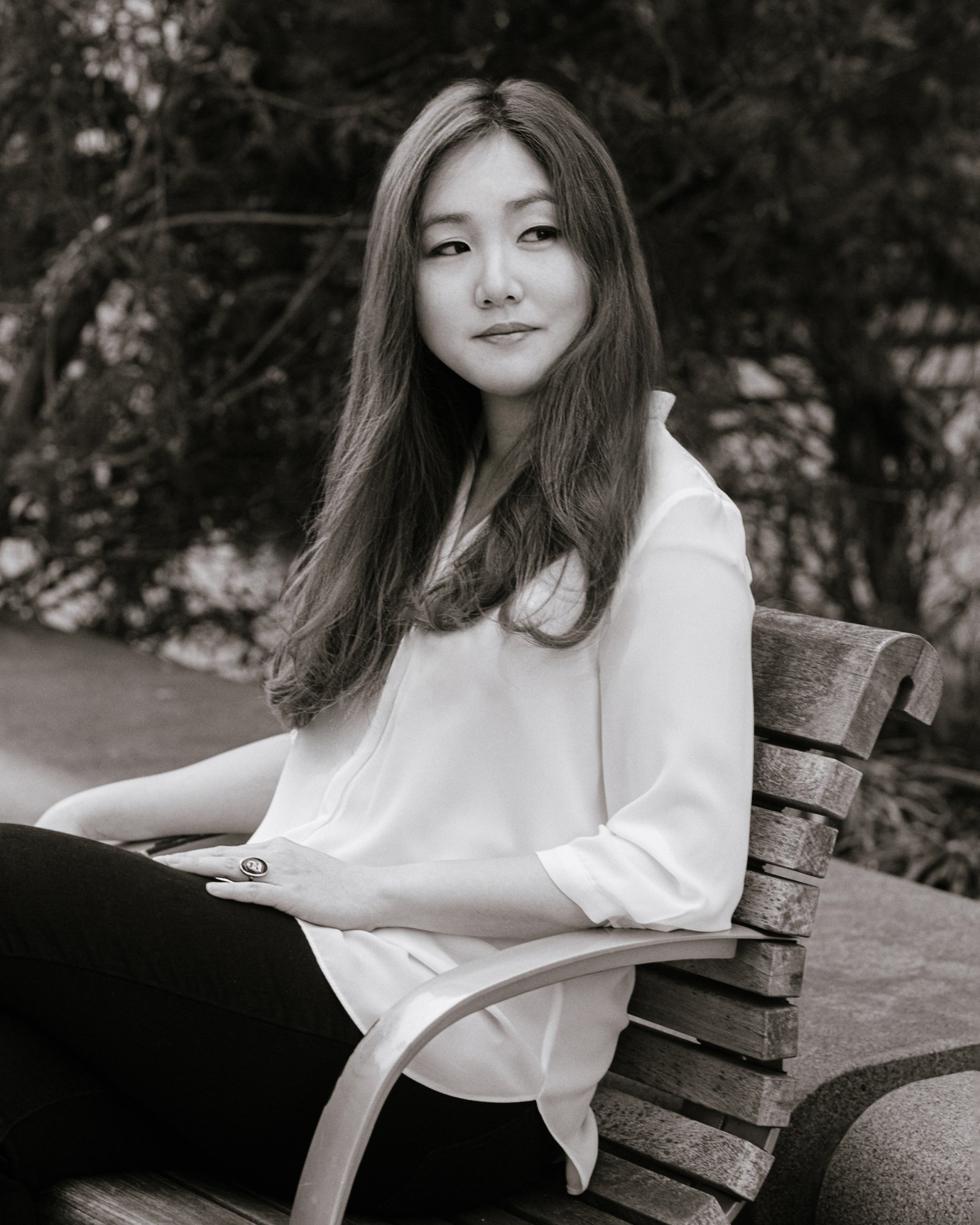When Frances Cha began writing her debut novel ten years ago, she had a life that looked very different to the one she leads now. “I got very, very obsessed with K-pop, like incredibly obsessed,” she says, chuckling into the phone. At 25, she left midway through her MFA in New York for Korea to look after her father who had fallen gravely ill. When he passed, and Frances found herself overwhelmed with grief, K-pop fandom offered the semblance of solace. “The band I was really obsessed with was BIGBANG,” she explains. “They were just starting out when I got into them, but they very quickly became the BTS of the time.”
Now settled in New York with her husband and children, Frances looks back and seems decidedly content to have closed the chapter of her life she lived as a stan. “I went through the motions in my day job, and then every other waking moment was dedicated to this obsession,” she muses. “I lived through a weird kind of dream-life.”
Frances’ younger self shared these habits with Ara, the first protagonist to appear in her new novel, If I Had Your Face. “I did feel that side of fandom was something I’d never seen in fiction, so I loved going there and writing about all the crazy things I used to do! I used to know where BIGBANG were every day, every hour. I would phone in to hear recorded messages about them every night, and fall asleep listening to the recordings. It was ridiculous, but it was my life, and I love Ara very much as a character because I recognise the dark place that I was in at the time, in her.” K-pop fanatic Ara works as a hairstylist in Seoul.
Then, we switch to the perspective of Kyuri, one of her regular clients, in the next chapter. Kyuri, whose radical efforts to improve her appearance have earned her a lucrative job as a ‘room salon’ girl — entertaining wealthy businessmen — finds herself in an increasingly precarious position when she upsets an important client. The following section is told through the eyes of Wonna, a pregnant newlywed whose growing financial woes have begun to drive a wedge into her marriage. Finally, we meet our fourth protagonist, Kyuri’s roommate Miho, an orphaned art student dealing with the emotional demons that have followed her from her days living amongst the wealthy elite in New York on a prestigious scholarship.

These women’s lives share loose ties with one another, the most literal of which being the fact they all live in the same apartment complex. As each chapter rotates to an alternate protagonist, they cross into each other’s lives with little incidence. But what all four women concretely have in common is a threatening proximity to poverty.
“Modern Korea is such a different place to the rest of the world, and I loved putting that into words,” Frances says. “That kind of futuristic, tech-based, extreme society is also a very hyper-competitive society in terms of academics. Because it’s the world’s most educated country, people are all competing for the same few universities.” Because of this, she explains, plastic surgery can end up being an economic lifeline. In If I Had Your Face, this social truth is rendered most sharply in Kyuri’s chapters. “I don’t want to judge my character for getting it. For her, it really is a way to make her life better, the only way that she can. Because Kyuri was not born into wealth and success, and she does not have the academic smarts to get into those schools, which offer the only other possibility for upwards social mobility in the country.”
Many of the novel’s early reviewers have noted Frances’ “cynical” and “casually brutal” approach to discussing “a materialistic society”, but this isn’t necessarily an interpretation she feels comfortable with. “In the Western context, plastic surgery is seen as very negative: it’s vain, it’s frivolous.” She offers the example of one particularly prevalent double standard: “I find that quite curious, because it isn’t how braces are commonly described in the West. The state of your teeth affects your confidence, your love life, in ways that are extremely immediate and direct, but dramatically altering that is very acceptable even though it is expensive, painful and invasive. It is a total transformation of your face, but there’s no judgement there in terms of people saying, ‘You should be true to yourself! Don’t feel the need to change anything about yourself.’”

Rather than attempting to go to war with K-beauty, Frances’ novel offers a nuanced look at the industry, one that acknowledges the very real benefits of faithfulness to it. Frances feels most comfortable in a full face of makeup, never leaving the house without her eyeliner. “There’s this saying in Korean: ‘Makeup shows courtesy to the other person’,” Frances explains. “That was kind of drilled into me from a young age by my mother. If you show up to meet somebody and you didn’t take the time or make the effort to look your best, you are kind of looking down on the other person.” What you communicate when you do wear makeup, then, is: “I think highly of you and therefore I’m making an effort for you.”
While Frances worries that Western readers may misinterpret her book as an indictment of Korean society, she is no stranger to decoding her culture for a global audience. When she lived in Korea, she worked as an editor for CNN Travel, where she would routinely encounter stories that required a kind of cultural translation for international readers. “That was a very cool training for me, in terms of getting to see the response from an audience who were quite unfamiliar with modern Korea and how different of a place it is,” she says. It was also during this period that Frances gathered the foundational narratives for If I Had Your Face.
When it came to writing the book, however, Frances found that she didn’t really think about her global audience, peppering Korean phrases into the English as liberally as she would in an ordinary conversation with her friends. “Often, we don’t even realise we’re speaking one language over the other. There are certain words that we keep in English and others we keep in Korean… there are several verbs that you can’t really translate into English,” she says. For Frances, the novel quickly became an exercise in writing the fiction she would have wanted to read when she was younger. She laughs. “My ideal reader was just someone like me!”

If I Had Your Face by Frances Cha (Viking) will be out on 23 July.
Credits
Photography Minu Han


